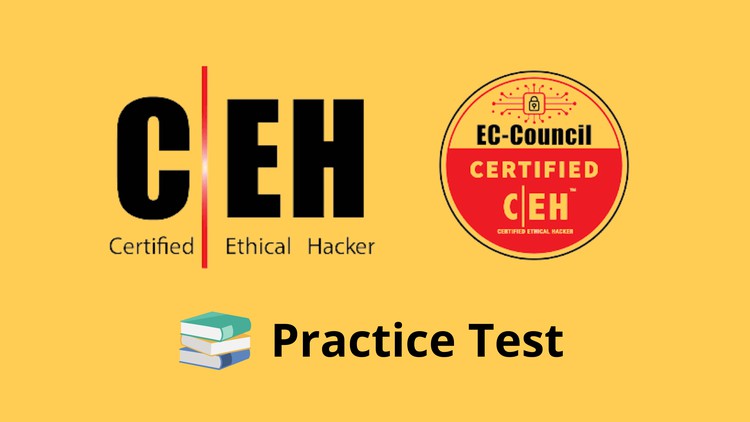
NEW 2023! CEH v11 / CEH v12 312-50. Be Certified Ethical Hacker!
What you will learn
Stay up to date with the latest cyber security news and trends and make sure you are implementing adequate cyber security measures in your organization using su
Avoid the risks of phishing attacks by adhering to ethical security behavior
Understanding cloud computing and how it can help your business is vital for the success of your venture.
Understand the legal requirements, privacy policies, and auditing process of your cloud environment
Focus on getting the IT infrastructure in order and removing the clutter by investing in the right software solutions; invest in a partner who has your back.
Description
WHAT’S COVERED?
- Footprinting and Reconnaissance
- Scanning Networks
- Enumeration
- Vulnerability Analysis
- System Hacking
- Malware Threats
- Sniffing
- Social Engineering
- Denial-of-Service
- Session Hijacking
- Evading IDS, Firewalls, and Honeypots
- Hacking Web Servers
- Hacking Web Applications
- SQL Injection
- Hacking Wireless Networks
- Hacking Mobile Platforms
- IoT Hacking
- Cloud Computing
- Cryptography
The 312-50v11 Certified Ethical Hacker v11 exam is a comprehensive assessment designed to evaluate individuals’ knowledge and skills in the field of ethical hacking. This exam focuses on various aspects of cybersecurity, including penetration testing, vulnerability assessment, and network defense strategies.
One key area covered in the exam is penetration testing. Test takers are expected to demonstrate their understanding of the methodologies and techniques used in ethical hacking. They should be able to identify vulnerabilities in systems and networks, exploit them responsibly, and provide recommendations for mitigation. This includes knowledge of various tools and frameworks used in penetration testing and the ability to analyze and interpret the results obtained.
You can pass the 312-50v11 exam easily with this Practice Test with Exam Questions. This course has the latest Question Bank taken from actual Exams in order to help you memorize and pass your exam on the very first attempt.
Another essential aspect evaluated in the exam is vulnerability assessment. Participants are tested on their ability to identify and assess vulnerabilities in systems and networks. They should be familiar with common vulnerability scanning tools and techniques and be able to analyze the scan results to prioritize and address the identified vulnerabilities. Understanding the principles of risk assessment and the ability to provide recommendations for risk mitigation are crucial skills assessed in this section.
The exam also covers network defense strategies. Candidates must demonstrate their knowledge of network security controls and best practices. This includes understanding different types of network attacks, such as DDoS attacks and intrusion attempts, and being able to implement appropriate defensive measures. They should be familiar with network monitoring and intrusion detection systems and understand how to configure and manage them effectively.
Furthermore, the exam may include questions related to ethical and legal considerations in ethical hacking. Test takers are expected to demonstrate their understanding of ethical guidelines and professional conduct in the field. They should be aware of legal frameworks and regulations that govern ethical hacking practices and adhere to them in their work. This includes knowledge of relevant laws and regulations regarding data privacy, intellectual property, and unauthorized access.
“Certified Ethical Hacker” and “CEH” is a registered trademark of EC-Council and this course is not licensed, endorsed, or affiliated with EC-Council in any way.”